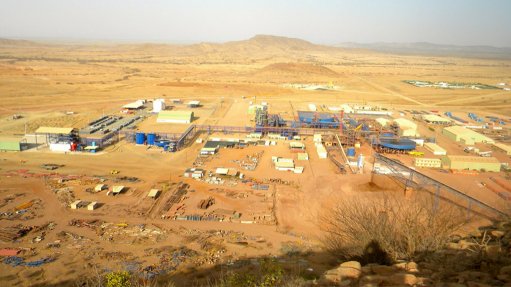
Name: Bisha mine.
Location: The Bisha mine is located 150 km west of Asmara, in Eritrea.
Controlling Company: Bisha Mining Share Company (BMSC) comprises Nevsun Resources (60%) and Eritrean National Mining Corporation, which holds the remaining 40% interest.
Brief History: Bisha started commercial production of gold in February 2011, which allowed an early payback of gold-phase capital and funding for the copper and current zinc-phase expansion. The mine transitioned from gold production to copper production in late 2013 and started commercial production of copper in December 2013. The development of the zinc flotation circuit required for future zinc production is expected come on line in the second quarter of 2016.
Brief Description: The Bisha property comprises the wholly owned BMSC Bisha mining licence, the mining agreement, the Harena mining licence and the Mogoraib river exploration licence. The property hosts the Bisha deposit, a large precious-metal- and base-metal-rich volcanogenic massive sulphide (VMS) deposit currently being mined, and the Harena VMS deposit, where a portion of the oxide gold cap mineralisation was mined until mid-2013. Additional satellite VMS deposits include Northwest and Hambok, both of which may eventually be mined.
The current mine life is estimated to be 11 years, projected to 2025, including six months of final processing of remnant oxide ores and gold doré extraction in the final year of the mine’s life using the original carbon-in-leach circuit.
Products: The Bisha property hosts a gold, copper and zinc deposit and includes satellite VMS deposits at Harena, Northwest and Hambok.
Geology/Mineralisation: Eritrea is divided into several north- or north-east-trending Proterozoic terranes, which are separated by major crustal sutures. The Bisha property is in the Nacfa terrane, which comprises low-grade metamorphosed calc-alkaline volcanics and sediments.
The VMS deposits at the Bisha property are hosted by a bimodal sequence of volcanic rocks. Felsic volcanics directly host and underlie and overlie the mineralisation at the Bisha, Harena and Northwest deposits. These felsic volcanics are flow-dominated, indicating proximity to volcanic vents. Mafic volcanic rocks occur deeper in the footwall to the east of the known mineralised zones. Alteration of the felsic volcanics is often very intense, with the primary mineralogy being converted to sericite and chlorite. The Hambok deposit, in contrast to the Bisha deposit, is entirely hosted in mafic volcanic rocks. All rock types are variably foliated and metamorphosed.
Mineralisation at the Bisha deposit is divided into the oxide, supergene and primary sulphide zones. The host rocks are felsic volcanics that have been altered to chlorite and sericite.
Reserves: Proven and probable reserves as at December 31, 2014, were estimated at 25.31-million tonnes.
Resources: Indicated resources as at December 31, 2014, were 38.37-million tonnes and total inferred resources were 10.72-million tonnes.
Mining Method: Bisha is mined using conventional drill-and-blast openpit techniques.
Major Infrastructure and Equipment: On-site infrastructure includes the Bisha and Harena openpits; a process plant, comprising crushers and primary and secondary grinding mills; leach, flotation, thickener, and other tanks; filter presses; wet tailings and waste-rock storage facilities; offices; maintenance and laboratory facilities; fuel storage areas; an on-site power plant; an 800-person camp and a nearby airstrip.
Prospects: In mid-2016, the flotation capacity at Bisha will be expanded again to produce zinc concentrates in addition to the copper concentrates from primary ore. The budget for this project is about $89-million, fully funded from operating cash flow.
Further, the Bisha VMS district remains underexplored and holds strong potential for expanding mineral resources and reserves for the Bisha mill.
Contact: Kin Communications.
Contact Details:
Nevsun Resources,
tel + 1 604 623 4700,
fax +1 604 623 4701,
email NSU@kincommunications.com, and
website http://www.nevsun.com
.